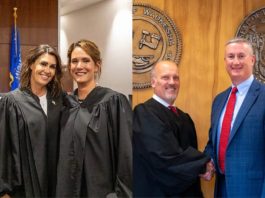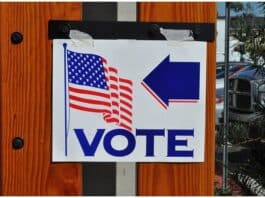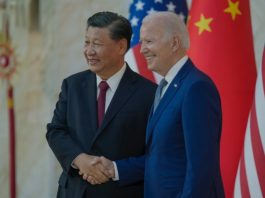Glenn Yamahiro could have chosen to recuse himself to remove any perception issues in such a contentious case; surely, there are a number of other judges without such close ties to one side who could have heard the case.
A former public defender and Jim Doyle appointee whose ex-wife and the mother of his child has worked extensively in opposition to Joseph Mensah got to decide whether to overrule the elected DA and criminally charge the officer.
Glenn Yamahiro has now made a decision that runs counter to multiple previous investigations; he has found probable cause that Mensah committed homicide by negligent use of a dangerous weapon using a rare John Doe provision in state statutes. He is now appointing a special prosecutor to handle the case.
[Note: this story first ran in May 2020 on Wisconsin Right Now. We’ve updated it to include the latest developments.]
Is that fair?
Milwaukee County Circuit Judge Glenn Yamahiro, who was asked by attorney Kimberley Motley to issue criminal charges against the former Wauwatosa police officer in the on-duty shooting death of Jay Anderson, has a close family tie to Motley and the Andersons, Wisconsin Right Now has learned. Anderson was shot and killed five years ago.
Here’s why:
Yamahiro is the ex-husband of Deja Vishny, who works for Motley’s law firm on an “of counsel” basis. Vishny has worked extensively with Motley as a literal legal team in her persistent efforts to get Mensah charged with homicide. Yamahiro and Vishny also share a child together; Vishny has served as a high-profile Anderson family attorney in the Mensah matters alongside Motley for months.
Due to a rare provision in John Doe statutes, it was up to Yamahiro to decide whether to criminally charge Mensah as his ex-wife and the mother of his child desires, even though the Milwaukee County District Attorney already ruled the 2016 shooting justified. A separate federal civil rights criminal investigation probe also resulted in no charges against the officer.
Mensah is now a Waukesha County Sheriff’s deputy.
This has raised serious concerns about fairness in some corners for months as Yamahiro’s decision looms, yet it hasn’t been explored at all in the rest of the news media.
For months, Vishny and Motley have been joined at the hip in calling for criminal charges against Mensah, working as lawyers for the Anderson family, firing off a letter opposing a settlement agreement that Mensah entered with the city, demanding open records in Mensah’s cases from the city, challenging curfew violations, and standing arm-in-arm at press conferences calling out Mensah and Wauwatosa in the strongest of terms.

How close are the pair? “Best partner EVER!!” Motley declared about Vishny, a former Milwaukee public defender.
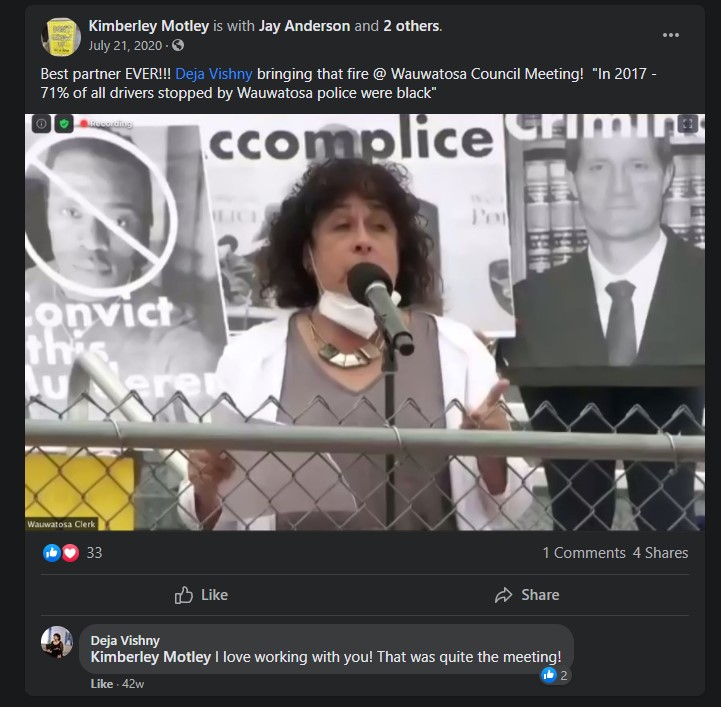

Thus, even though the DA ruled the Anderson shooting (and two others) justified, a former public defender and Jim Doyle appointee whose ex-wife is deeply tied to the anti-Mensah side in a very public way will get the final say on whether the officer’s life will be, effectively, ruined via a criminal homicide charge.
Mensah John Doe Hearing Before Judge Glenn Yamahiro
Closing arguments in the Mensah John Doe hearing, which was requested by Motley, are taking place on May 19 before Judge Yamahiro.
If you think it’s ridiculous that a judge can overrule the decision-making of the DA, blame the Legislature for that, which, a few years ago, after hue-and-cry over the John Doe into then Gov. Scott Walker, limited the John Doe statute to exclude legislators but left cops at its mercy. The statute allows a citizen to petition a judge to issue a charge when a DA will not; the judge has immense power in a John Doe hearing to do just that.
Glenn Yamahiro gets to ask witnesses questions in the Mensah John Doe hearing, but Mensah’s attorney can’t cross-examine them because Mensah is not a defendant – it’s all about WHETHER to charge him.
“Are you aware of anybody else who fired their weapon 19 times in the past 30 years while you’ve been chief?” Yamahiro asked Wauwatosa Police Chief Barry Weber recently in the John Doe hearing.
Taleavia Cole, the sister of Alvin Cole, the armed teenager shot and killed by Mensah outside Mayfair Mall, in another shooting ruled justified by the DA, seems to think it’s going well for the anti-Mensah side.
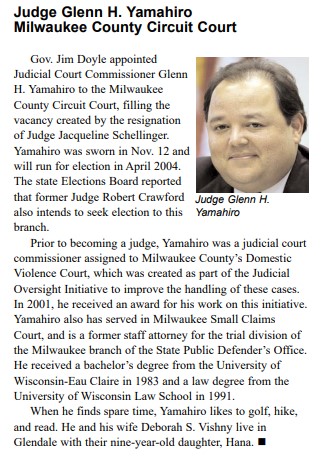
“This morning, Judge Glenn Yamahiro dismissed all Joseph Mensah’s motions to dismiss this Jon Doe Hearing,” Cole wrote on May 17. “Motion to dismiss is Denied! Thank you Judge, Kimberley Motley, and the family of course. We are still on Wednesday, May 19th for Kimberly’s closing statement.”
We contacted Judge Yamahiro to see if he had any comment on the alleged conflict with Vishny. His clerk got back to us and said that the issue was “discussed on the record at the time” and the judge had no further comment. We contacted Mensah’s attorney Jon Cermele and left a message.
“It is not fair everything he (Mensah) has went through,” Mensah’s girlfriend Patti Swayka told WRN when asked for comment. “He’s been fighting fair all along, even when he was treated unfairly and out of the ordinary. He is the kindest, most intelligent, STRONGEST, loving person, I have ever met. He will make it beyond this because he is an honest person. Honesty always wins.”
We also contacted Rick Esenberg, a legal expert who is president of the Wisconsin Institute for Law and Liberty. Specifically, we asked him whether the judge was mandated to recuse and whether this kind of conflict is a violation of judicial ethics. He said that’s unclear and open to interpretation; some judges have voluntarily recused in somewhat similar cases to remove, minimally, perception issues of fairness, though.
You can judge for yourself as to whether you, if you were in Mensah’s shoes, would feel you were getting a fair shake from a judge with such close family ties to the side lobbying aggressively to get the judge to criminally charge you.
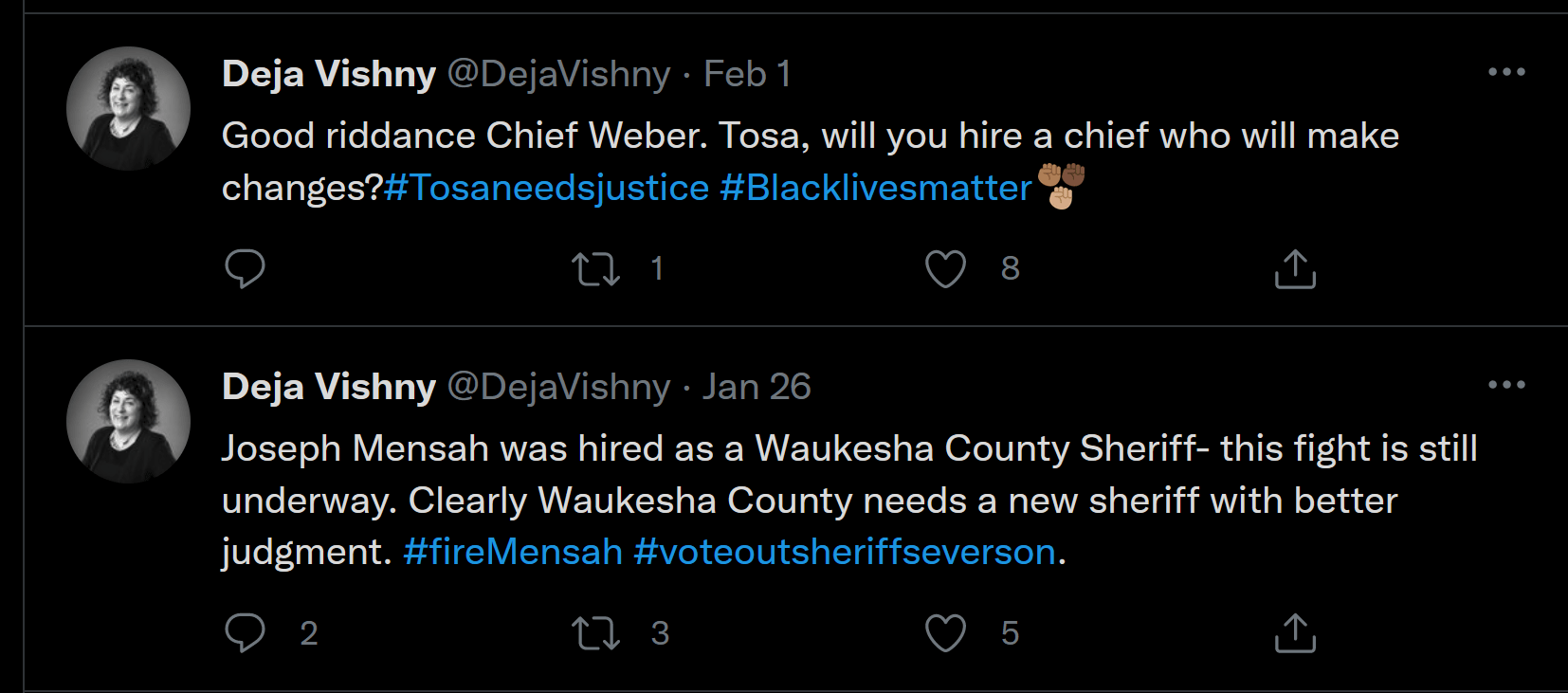
The Wisconsin case State v. Crystal Harrell involved “a case tried by the district attorney’s office, a circuit court judge, whose spouse is an assistant district attorney in the same county.” The Supreme Court was asked to consider whether state statutes prohibit a judge “from hearing a case when a close relative is ‘counsel thereto’ for either party.” The court found that statutes do not require “a judge to disqualify himself or herself in such a situation as long as his or her spouse did not participate in, or help prepare, the case.”
The 1996 Wisconsin Supreme Court decision also found that a conflict extends to “the attorney of record and any other attorneys who appear or participate in the case.” That case differed in some keys ways from this set of circumstances, though; for example, the court found that prosecutors don’t have a financial interest in the outcome of a case, making the conflict less problematic. In this case, Vishny has been repeatedly identified as an Anderson family attorney, although it’s not clear if she’s getting paid.
Did she help prepare the case? Did she participate?

Esenberg believes Vishny’s deep involvement in the issue makes the question of recusal more complicated.
“The judicial code defines a member of the judge’s family as follows: ‘Member of the judge’s family’ means the judge’s spouse, child, grandchild, parent, grandparent and any other relative or person with whom the judge maintains a close familial relationship.’ A judge may not sit on a case in which a member of his family is a lawyer,” Esenberg told WRN.
“Maybe recusal is not required by this provision because 1) she is not a lawyer ‘in the proceeding” and 2) the two are divorced. The first argument can work – Justice Ann Walsh Bradley recused herself from the Doe case because her son’s firm was involved – although others read it differently. I recall Justice Steinmetz sitting on cases involving Foley & Lardner even though he had a son and two sons-in-law at the firm. But her involvement in other aspects of the matter make this tougher. The other point – that they are divorced – could succeed as well but may turn on the nature of their relationship. There are other provisions that might be said to apply and also the appearance of impropriety standards that are general and broad but that the judge ought to consider.”
Overall, he said it’s not clear or a settled matter in the law.
Certainly, Glenn Yamahiro could have chosen to recuse even if not mandated to remove any perception issues in such a contentious case; surely, there are a number of other judges without such close ties to one side who could have heard the case.
How close is Vishny to the case? Consider:
Vishny was an attorney for the Anderson family on the Mensah John Doe case for a week, withdrawing the day after Yamahiro was appointed.

Vishny has a website on which she states that she is “currently of counsel at Nelson Defense Group in Hudson Wisconsin and with Motley Legal nationwide.” Motley Legal is Kimberley Motley’s firm. Motley is the extremely public and aggressive lawyer for the families of those shot and killed by Mensah and the Peoples Revolution protest group.
Court records show that Vishny, whose real name is Deborah Vishny, was divorced from Yamahiro in 2010. They were joint petitioners and there was a petition for child support. He is remarried. A 2004 article on the Urban Milwaukee website confirms that Vishny, a former public defender, was married to Yamahiro. “I’m Glenn’s wife,” she told that reporter, who wrote that “the couple has one child,” who was then in elementary school.
Vishny and Motley have whipped out press releases together calling for the “immediate suspension” of Wauwatosa Chief Barry Weber.

They’ve also worked together on other police-related cases, suing the City of Kenosha on behalf of Jacob Blake protesters who were given curfew tickets.
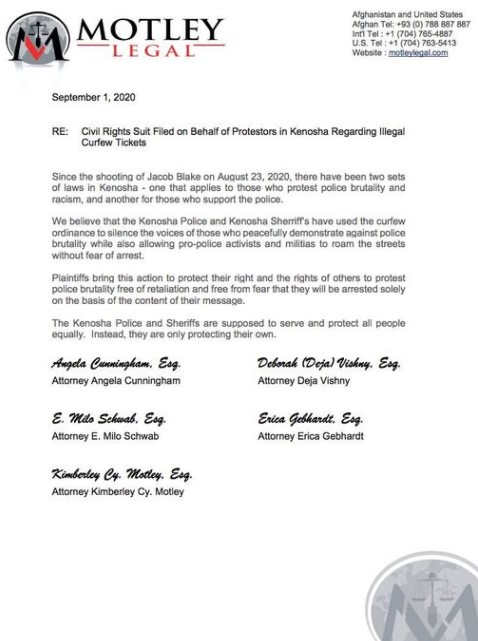
A 2016 article by the Neighborhood News Service quoted Vishny gushing about Motley and says she was her former supervisor.
“I really liked her approach to work,” Vishny told the site. NNS reported that “Vishny worked with Motley in a trial skills program and as her supervisor when Motley joined SPD after graduating from Marquette Law School in 2003.” Vishny gushed in that article about Motley’s tenaciousness and pursuit of what Vishny called “justness.”
The Shepherd Express referred to “Deja Vishny and Kimberley Motley, the attorneys representing the Cole and Anderson families.”
“Motley and Vishny submitted formal complaints to the Wauwatosa City Hall,” that article says. “Vishny and Motley have said that they will use the information revealed by their open records request in the District Attorney’s review.”
There’s more. “Lawyers Kimberley Motley and Deja Vishny issued a letter to Wauwatosa Common Council members, City Attorney Alan Kesner, Police and Fire Commission (PFC) president Dominic Leone, and others on Nov. 18 outlining the ‘strong objections’ they have to the (Mensah settlement) agreement,” according to ABA Journal.
“Motley and Vishny have represented the families of those Mensah has killed, including 17-year-old Alvin Cole. The Motley Legal firm also filed complaints against Mensah on behalf of the families of 25-year-old Jay Anderson, Jr. and 28-year-old Antonio Gonzales.”
What are the rules of judicial recusal? The American Bar Association says:
Other “close personal relationships”—such as amicably divorced individuals who maintain joint custody—require that the judge follow the dictates of rule 2.11(C), which provides for a remittal of disqualification. That rule reads: A judge subject to disqualification under this Rule, other than for bias or prejudice under paragraph (A)(1), may disclose on the record the basis of the judge’s disqualification and may ask the parties and their lawyers to consider, outside the presence of the judge and court personnel, whether to waive disqualification. If, following the disclosure, the parties and lawyers agree, without participation by the judge or court personnel, that the judge should not be disqualified, the judge may participate in the proceeding. The agreement shall be incorporated into the record of the proceeding.
Urban Milwaukee reported that “Attorney Deja Vishny… has worked with Motley on the Wauwatosa cases.”
WTMJ described Vishny as an “Anderson family” attorney.
“There are a lot of changes that need to be made in policing and Wauwatosa Police Department has been a problem,” Vishny told WTMJ.
“Vishny and Kimberley Motley were recently retained by the Anderson family. The attorneys are also working with Alvin Cole’s family,” the television station reported.
They also spoke together in a training session for the National Association of Criminal Defense Attorneys called “Media, the Movement, & Using the Law: Challenging Bad Cops – Kimberley Motley (Milwaukee, WI) and Deja Vishny (Milwaukee, WI).”
They’ve hosted fundraisers together.
Vishny wrote on Twitter in November 2020, “Joseph Mensah’s resignation is long overdue. While we welcome the news; it is tragic that the WPD under Chief Weber’s leadership failed to address his shortcomings for years. It is time for new leadership in the WPD!#stillfightinginTosa”
Vishny criticized the DA’s decision not to charge Mensah in the Alvin Cole case.
“This is a different standard than is used with non-police witnesses,” Deja Vishny said. “This is a culmination of years of not holding police officers criminally accountable for their conduct, and in this community, this has to stop.”
Table of Contents
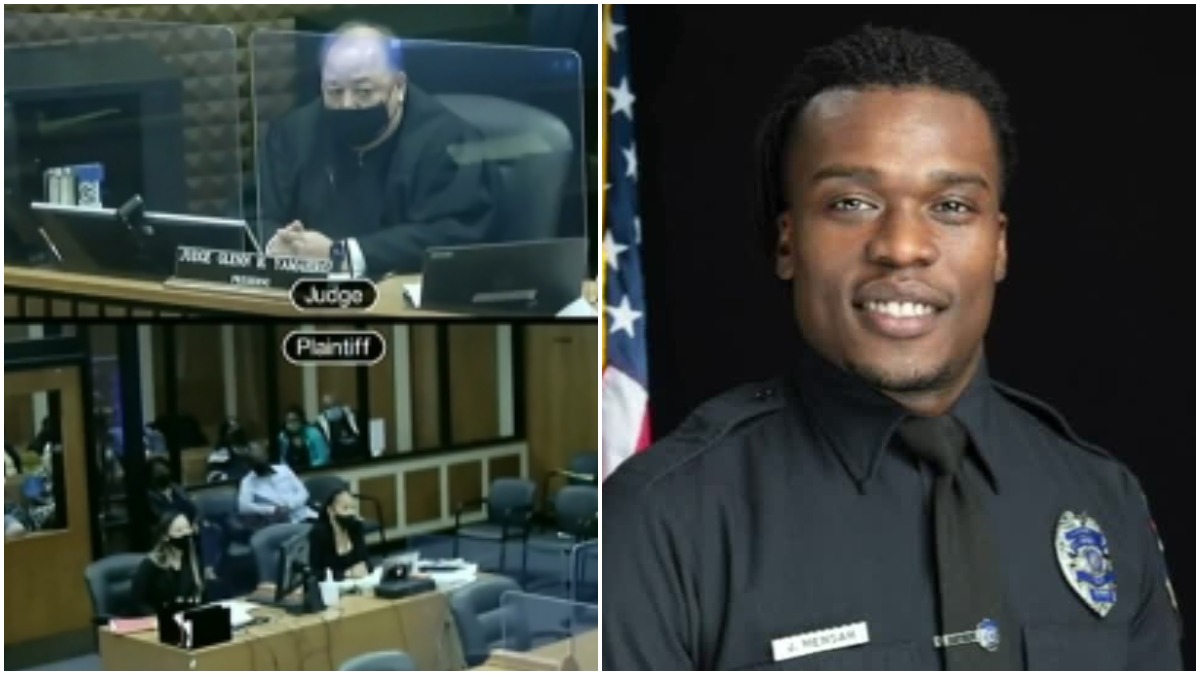


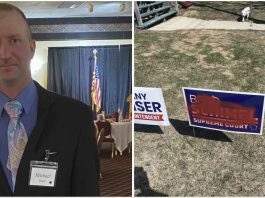


![Phil Gramm’s Letter to Wall Street Journal [Up Against the Wall]](https://www.wisconsinrightnow.com/wp-content/uploads/2025/03/gramm-265x198.png)
